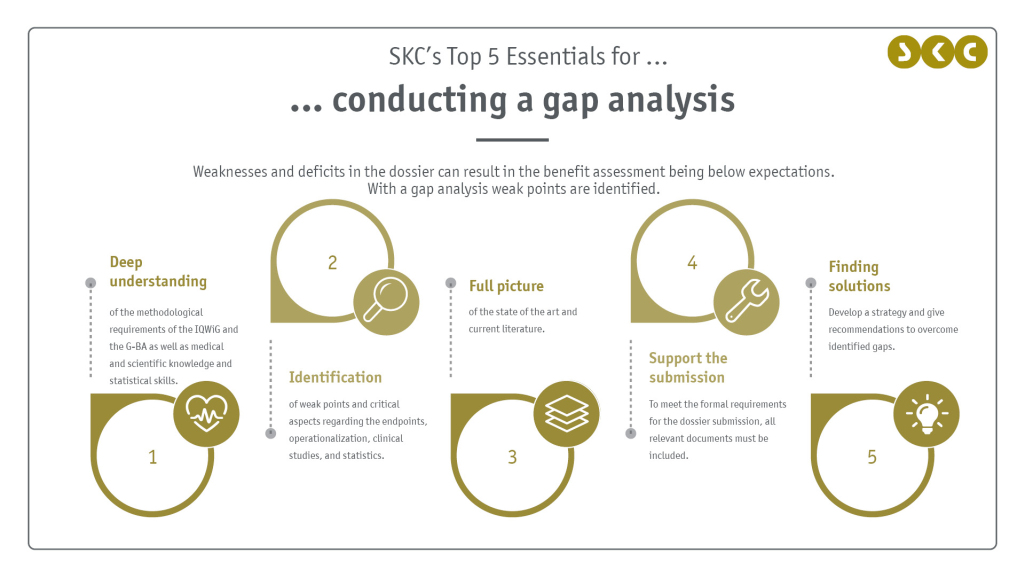Conducting a gap analysis
SKC’s top 5 essentials
Ideally, a gap analysis should be carried out by AMNOG-experienced experts who neutrally and critically check existing statistical analysis plans, clinical study reports, data tables or dossiers from the authorities' perspective. It is crucial that you are not only familiar with the AMNOG process and clinical trials but also have sound basic medical and scientific knowledge, as well as statistical skills. A deep understanding of the methodological requirements of the IQWiG (German Institute for Quality and Efficiency in Health Care) and the G-BA are essential to be able to anticipate weaknesses and provide feasible solutions.
As part of the gap analysis each study data and operationalization of endpoints will be analyzed in detail as the dossier must be accurately planned and have an evidence base that has a low potential for bias. For SKC the gap analysis is already part of the risk assessment for the overall AMNOG process. We support our clients in providing transparency over critical issues and improve the quality of the studies and thus the dossier with guidance on supplementary analyses, the generation of subgroups or the inclusion of (indirect) comparisons or meta-analyses.
Moreover, the identification of patient-relevant endpoints is one of the key aspects of the gap analysis. With the help of our specially developed MAIS-database of all benefit assessment procedures, SKC has comprehensive expertise in finding precedents for critical endpoints and in developing strategies to overcome existing gaps.
Each module requires an extensive literature review to convey the dossier content in a comprehensible, precise and up-to-date scientific manner. SKC's specialised research team is very familiar with this. This ensures that your dossier does not leave out any important findings to support the value story.
Since the determination of the added benefit depends on the study results presented, these must be presented in a statistically correct and comprehensive manner. SKC uncovers weaknesses and makes recommendations for post hoc analyses.
A formal audit is also important: Does the dossier meet the eventually recommended formal requirements? Are all the necessary documents available? - If documents are submitted incompletely, this can have negative consequences for the benefit assessment. From many years of experience, SKC is very familiar with the AMNOG requirements and ensures that no important documents are forgotten to be submitted.
About the author

Manager Market Access
Dipl.-Biologin
Fax: +49 511 64 68 14 18

